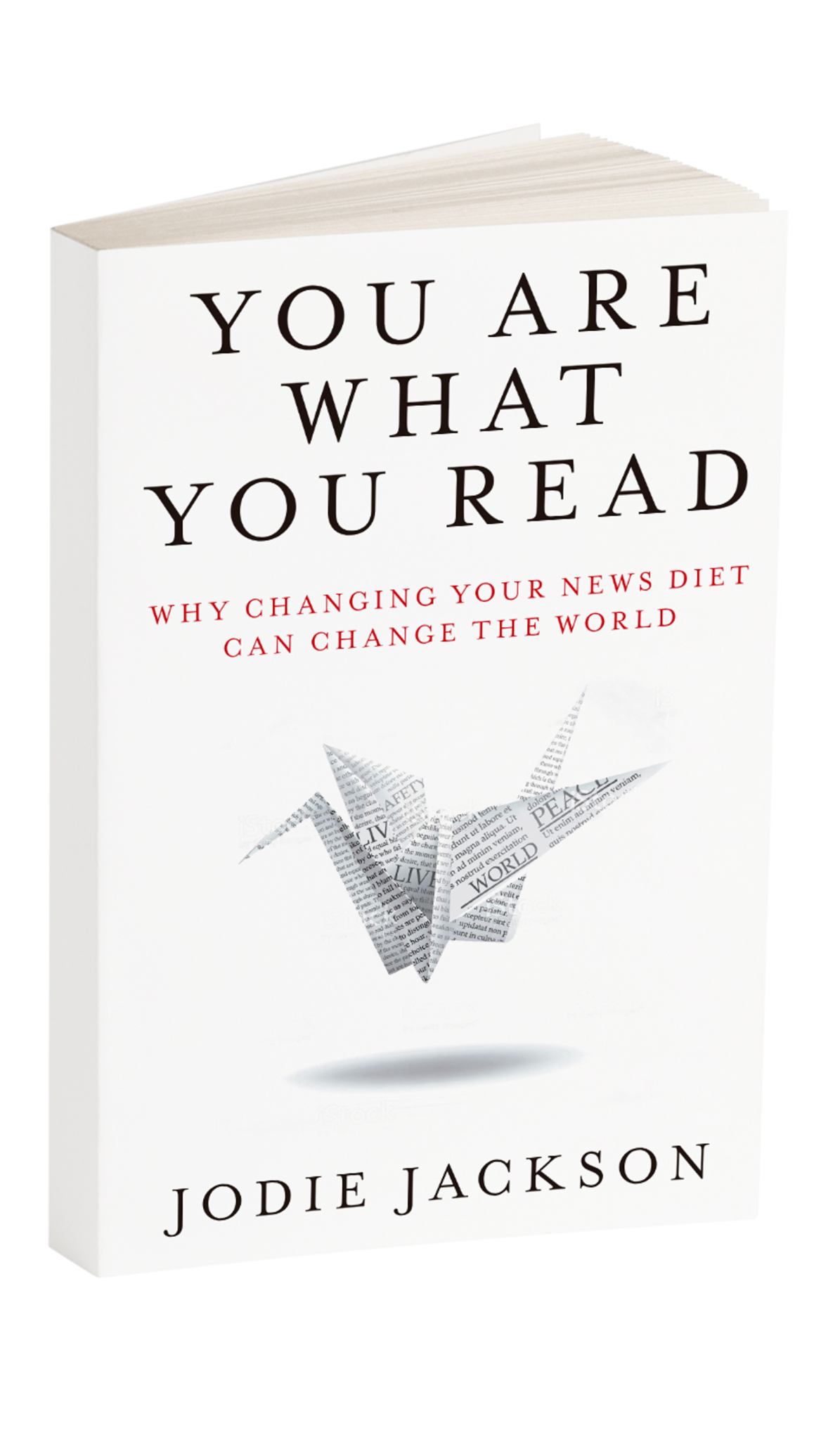You are what you read
Do you ever get that feeling of overwhelming hopelessness, the moment you switch off the evening news?

Do you get sucked into a state of sadness about the state of the world we live in, without any hope for its future? Does it make you want to ignore the headlines, but leave you guilty for not engaging at the same time? But is there, deep down, a nagging feeling that there must be another side of the story too – one that doesn’t get reported? Then bear with me, because there is good news, says Jodie Jackson.
I wondered all of the above when I first started researching the impact of news on our wellbeing. Perhaps unsurprisingly, I quickly learned that the news, quite literally, makes us miserable. At best, it leaves us indifferent, but more often than not, it triggers low mood and a passiveness that can even lead to anxiety and depression.
Things got more interesting, however, when I looked into the effects of news about things that were not negative. Stories about progress and possibility, about hope and optimism. It turns out such stories motivate us. They kick us into gear and play into our natural desire to care. As a force for inspiration, the news can, in fact, be hugely powerful. But it requires us to radically change our media diet.
Who decides what ‘news’ is, anyway?
Let’s step back for a moment to understand what news is for. At its core, one of the most trusted roles of the news is to connect us to world events that we are unable to experience first-hand, as well as reflect events we do bear witness to. The stories told help us make sense of the world. And, whether we like it or not, they also influence our opinions and beliefs.
Given the enormous power it holds over us, it is important we ask the question: what exactly is ‘the news’? There are thousands of events happening daily, of which only a selected few are considered “newsworthy”. It may not be a surprise to know that stories most considered for the news focus on war, corruption, scandal, murder, famine, and natural disasters. These types of stories are not just more heavily reported but are also given preferential treatment and display. In this sense, the news is not a reflection of everything that goes on in the world; it is a reflection of everything that goes wrong in the world. This is more commonly referred to by the industry as “if it bleeds it leads”.
Many news professionals and news consumers will tell you that there is good reason to report the negative aspects of humanity and its affairs. And it is true that the news plays an essential role of watchdog in society, shining a light on many of the world’s ills and injustices that need addressing, forcing them onto the public agenda and putting pressure on government, organisations or individuals to make it better in some way. Exposing these injustices has been vital in helping us understand, confront and correct problems, enabling society to progress.
But in some ways, negative news has become a victim of its own success. The excessive wave of negativity has brought us over the brink of a tipping point, moving the news from being helpful to becoming harmful. News outlets are losing readers and viewers every day. People are switching off.
This understanding is by no means a new one. The late Dr Ralph Haskins (1981), a journalism professor at the University of Tennessee, researched the psychological impact of the news and advocated for constructive journalism. He suggested that “prolonged exposure to bad news over long periods can have detrimental effects on moods, attitudes, perceptions and emotional health”. And worse: overrepresentation of negative news can create an inaccurate picture of reality. One in which our perception of risk often exceeds reality, leading us to believe the world is more dangerous than it actually is.
What is new is the awakening currently happening in the news industry. Anyone from global news channels to niche publications is beginning to look at what we have been missing for so many decades. Both editors and audiences are starting to realise that helplessness, along with many of these other psychological responses, is a learned mental state. It can just as easily be unlearned, but we need the right information. This is where solutions-focused news comes in.
Reporting constructively on both problems and solutions brings us balance and perspective. This balance is useful in creating context and helps readers understand what a story means, both in terms of its failings and opportunities. It has also been shown to reduce anxiety, increase engagement, improve our mood and improve our social relationships, but most importantly, it can help us feel optimistic, hopeful and empowered. Many people, including leading psychologists Freud and Nitzche, have sidelined these emotions as nothing more than dressed up feelings of denial. I would have to disagree; these important emotional stated are not psychological shields or defenses built in order to protect ourselves from or deny the problems of the world. Instead, they form our psychological armour, worn to give us courage to address these problems head on.
In my research, I learned the most from people who had been consuming solutions-focused news for years. One participant said: “Highlighting small but significant steps forward exposes the reader to possibility. It can empower them to realise their own potential to make a difference”. Another said: “The action I take may not be directly related to the content of an article, but either way I am more inclined to roll up my sleeves and do something about something.”
Sometimes, we simply do need to see it to believe it.
Jodie Jackson is currently crowdfunding her new book, ‘You Are What You Read: Why Changing Your Media Diet Can Change the World’ on Unbound. You can join the news revolution by pre-ordering a copy here.







